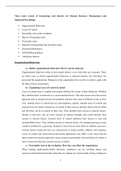Summary
Summary Industrial Psychology and Human Resource Management
- Course
- Institution
- Book
These question and answer notes. Giving students an idea of what tests and assignments look like. It's helpful for students who struggle to understand basic concepts and terminology.
[Show more]



